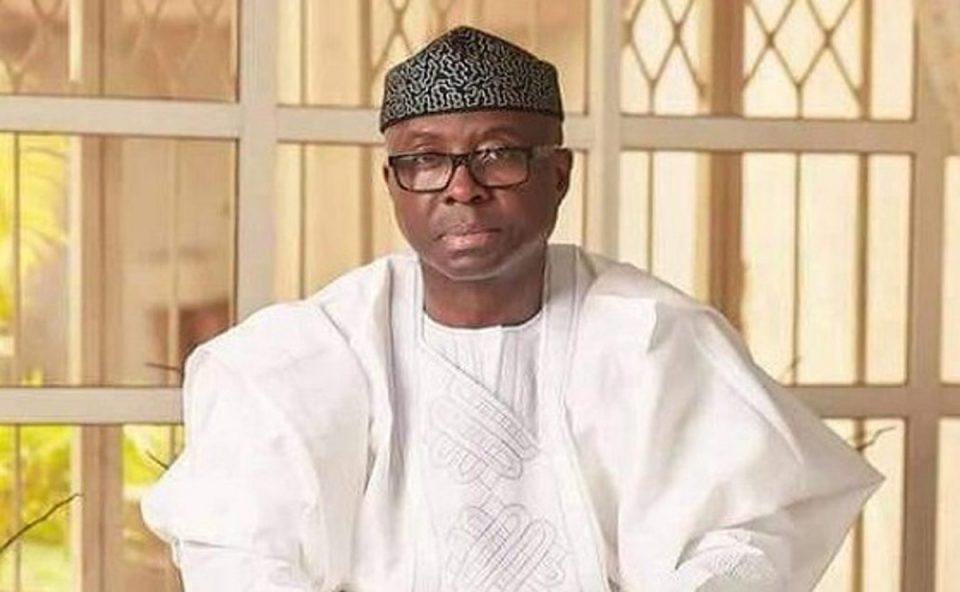By Charles Okonji
As part of efforts geared towards proffering solutions to annual colossal food rot, the Federal Government has called for Public Private Partnership (PPP), to drive cold chain and surmount challenges in Nigeria and African trade.
The Minister of Industry, Trade and Investment, Otunba Niyi Adebayo, stated this in Lagos on Tuesday in his remarks at the 5th West African Cold Chain Summit and Exhibition (WACCSE 2023).
The event was organized by the Organization for Technology Advancement of Cold Chain in West Africa (OTACCWA) and partners, on the sideline of Nigeria’s 8th International Trade Exhibition on Agrofood, Plastics, Printing and Packaging.
Commending the organisers of the exhibition, Adebayo said any improvement in the agricultural commodity value chain, including addressing the reduction of post-harvest loss (PHL) of perishables, is fundamental and would have a positive impact on Nigeria and the larger African economy.
The minister pointed out that with the global economic disparities, high market requirements in terms of quality standards, increasing competition, constantly changing customer demand, it is paramount for Nigeria to have a robust and innovative strategy for addressing cold chain bottlenecks and to remain globally competitive.
He urged stakeholders to invest in the cold chain sector, which can be highly profitable and reap from the economic benefits which abound.
“We are optimistic that if the public and the private sectors work together to uplift the cold chain industries to international standards, it would assist in the diversification of the Nigeria economy, improve job and wealth creation, enhance infrastructural development and technological innovations in the overall interest of the Nigerian and African economy.
“You will agree with me that output from this cold chain submit and exhibition is auspicious for the wellbeing of Nigeria and Africa; with its goal of finding solution to post harvest losses (PHL) in Nigeria and across sub-Saharan Africa, identified as one of the major problems facing our agricultural sector.”
He noted that PHL can be resolved by instituting an efficient and sustainable cold chain infrastructure, coupled with an efficient supply chain network, of which the private and public sector both have their roles to play in this regard.
In his speech, Paul Maerz, Managing Director of the organisers of the fairtrade Messe, noted that global technology leaders from 17 countries were on ground to showcase adapted technologies and solutions for the Nigerian and West African market in the fields of agriculture, food + beverage processing, ingredients, plastics, printing and packaging.
According to Maerz, “The exhibitors are from Austria, Bulgaria, China, Côte d’Ivoire, Germany, France, India, Italy, Lebanon, the Netherlands, Nigeria, South Africa, South Korea, Spain, Türkiye, Taiwan, United Kingdom and the USA.
“Germany is again participating with an official German Pavilion, presented by the German Federal Ministry for Economic Affairs in cooperation with the Association of the German Trade Fair Industry (AUMA) and supported by VDMA Food Processing & Packaging Machinery.
“The Netherlands is participating with official Netherlands pavilion presented by the Government of the Kingdom of the Netherlands and organised by NABC together with East-West Trade Consulting.
According to Maerz, the exhibition is supplemented by a 3-day program full of presentations and panel discussions, where Nigerian and European experts discuss current topics of concern to professionals.”
He noted that the enormous population growth from 206 million in 2022 to 411 million in 2050 demands high sustainable investments in Nigeria’s agrofood & plastprintpack industry.
“The figures underline the importance of the Nigeria agrofood & plastprintpack market.” Maerz stressed
He said this year, for the first time, Micronutrient Fortification Index (MFI) Awards was hosted alongside agrofood & plastprintpack and WACCSE 2023. The MFI Awards ceremony is co-sponsored by the MFI and powered by TechnoServe via a Bill & Melinda Gates Foundation sponsored initiative, the Technical Assistance Accelerator Programme.
“To highlight the importance of the Nigerian market I would like to mention some figures: With €346m in 2021, Nigeria is the largest investor in food & packaging technology in Africa, ahead of Egypt, South Africa, Algeria, Morocco and all other African countries.
“With €165m in 2021, Nigeria is the second largest importer of plastics technology in Sub-Sahara Africa, just behind Egpyt (€202m) and well ahead of South Africa. Nigeria’s plastics technology imports increased by an average of 25 per cent per year between 2016 and 2020.
“At €50m in 2020, Nigeria ranks second in sub-Saharan Africa for imports of printing and paper technology, behind Egypt, but well ahead of other African countries.
“With €151 million in 2021, Nigeria is among the three largest investors in packaging technology in Africa, in line with South Africa and behind Egypt, ahead of Algeria, Morocco, Tanzania, Tunisia, Ethiopia, Ghana and Kenya.”
On his part, the President of OTACCWA, Alexander Isong, pointed out that cold chain would bring a lot of economic development and earnings to Nigeria, adding that if Nigeria grows it’s cold chain industry,, the country will be able to meet all major certification standard and GAP needs desired to export its produce to other countries.
“This means Nigeria will begin to eat foreign exchange by exporting and selling produce that would have gone to waste.”


previous post

